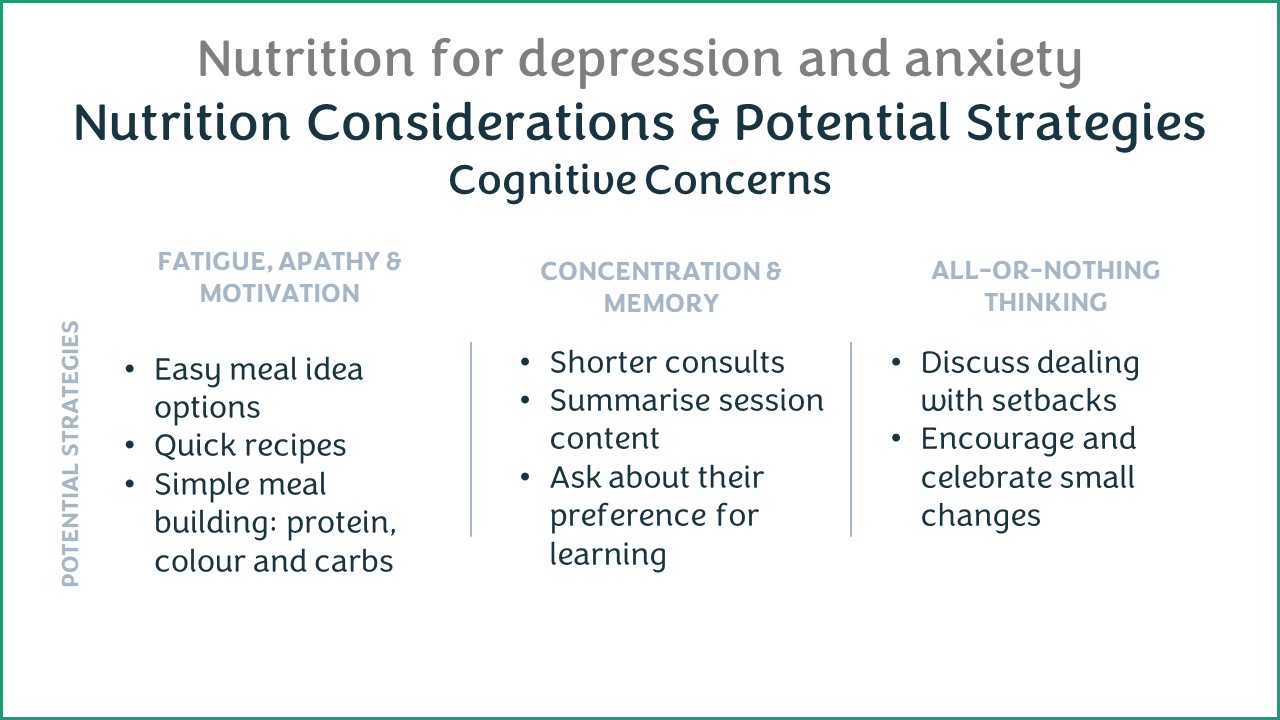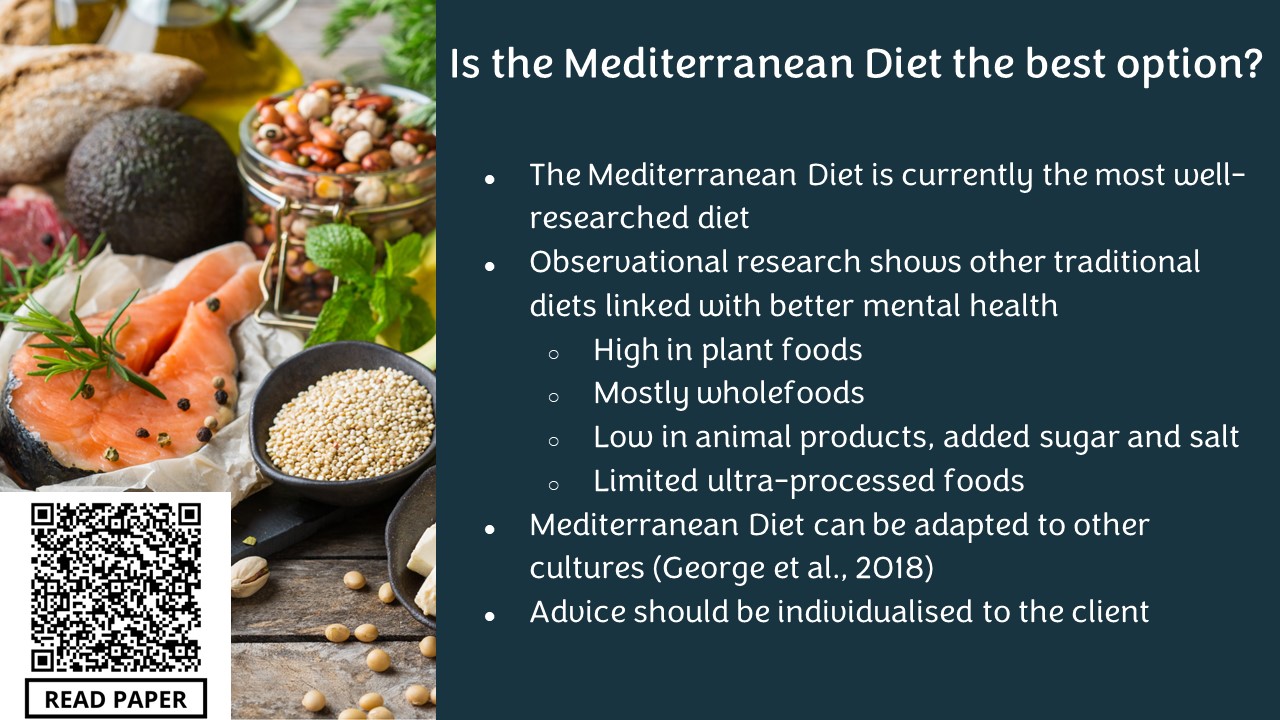Nutrition for depression and anxiety by Sophie Mahoney, APD
 Anthea Talliopoulos, APD
Anthea Talliopoulos, APD
With over 40% (over 2 in 5) of 16-85 years-old individuals in Australia being predicted to experience a mental health disorder in their life, and 1 in 5 of these Australians experiencing a mental health disorder in the past 12 months, it is crucial that we advocate for mental health and support our clients as best as possible. Commonly these people have comorbid conditions and may have been referred to us not primarily for mental health, but in taking a history we discover mental health issues are concerning for them.
While diet and mental health is a relatively newer area of research, the research is promising, especially with respect to traditional dietary patterns which have in common the use of whole foods and avoidance of ultra-processed foods. Dietary modifications, such as those consistent with, for example, the Mediterranean Diet have been clinically proven to reduce low grade inflammation, reduce oxidative stress through the potent antioxidant properties of the dietary components, and enhance brain plasticity through increasing brain-derived neurotrophic factor (BDNF) associated with depression.
With reference to clinical research, Accredited Practising Dietitian Sophie Mahoney provides a thorough overview on the importance of nutrition in mental health, discussing how nutritional components such as omega-3 fatty acids, unsaturated fatty acids and polyphenols (such as in extra virgin olive oil) have a beneficial effect on mental health, enhancing brain growth. She further discusses how the role of the gut microbiome in mental health cannot be overlooked, regulating the production of neurotransmitters such as serotonin, as well as brain proteins that influence the growth of new brain cells. Short chain fatty acids (SCFAs) can also assist with maintaining the gut lining, as well as having a positive effect on modulating inflammation.
In a practical sense, in working with clients to support dietary changes to assist with anxiety and depression management, it is fundamental that recommendations are client-centred, with an emphasis on a health-focused approach, rather than on a weight focussed approach. Providing a non-judgemental atmosphere is likely to increase client adherence and support positive dietary changes consistent with traditional diets to best support mental health.
Summary:
- Over 40% (over 2 in 5) of 16-85 years-old individuals in Australia will experience a mental health disorder in their life, and 1 in 5 of these Australians have experienced a mental health disorder in the past 12 months.
- Traditional diets, such as the Mediterranean diet are a safe and increasingly researched effective way of supporting mental health through reducing low grade inflammation, reducing oxidative, and enhancing brain plasticity through increasing brain-derived neurotrophic factor (BDNF) associated with depression.
- The role of the gut microbiome in mental health cannot be overlooked, regulating the production of neurotransmitters such as serotonin, as well as brain proteins that influence the growth of new brain cells.
- Client-centred care, with an emphasis on a health-focused approach and nourishing food swaps consistent with traditional diets, rather than on solely a weight focussed approach can best support mental health.
Sophie is an Accredited Practising Dietitian specialising in nutrition for common mental disorders and gastrointestinal conditions. Sophie works in her own online private practice and is passionate about advocating for the role of diet and lifestyle therapies in managing gut and mental health. Sophie also works as an Associate Research Fellow at Deakin University’s Food and Mood Centre. Sophie has a research interest in lifestyle therapy for people experiencing depression, as well as nutrition interventions for those experiencing comorbid irritable bowel syndrome and common mental disorders.
To register for the presentation and associated documents including the assessment quiz click here

